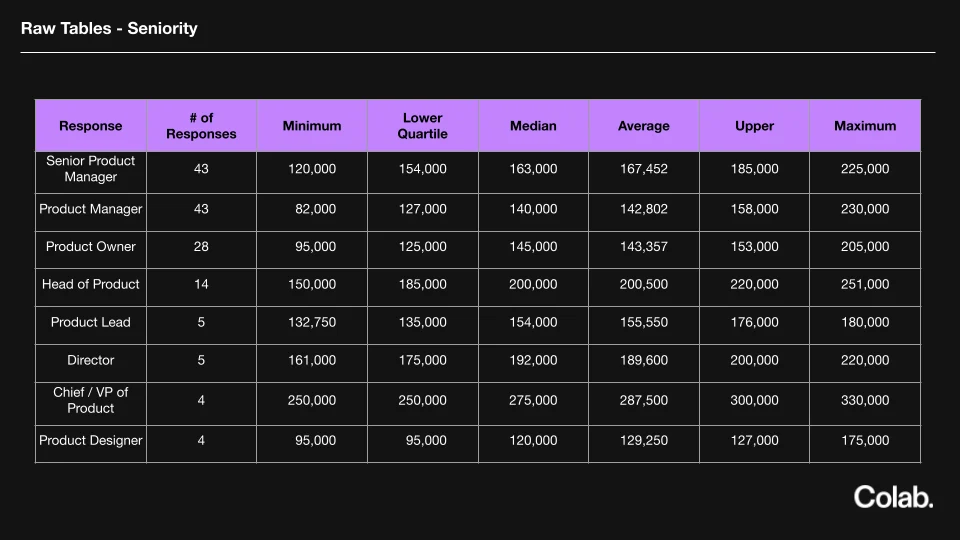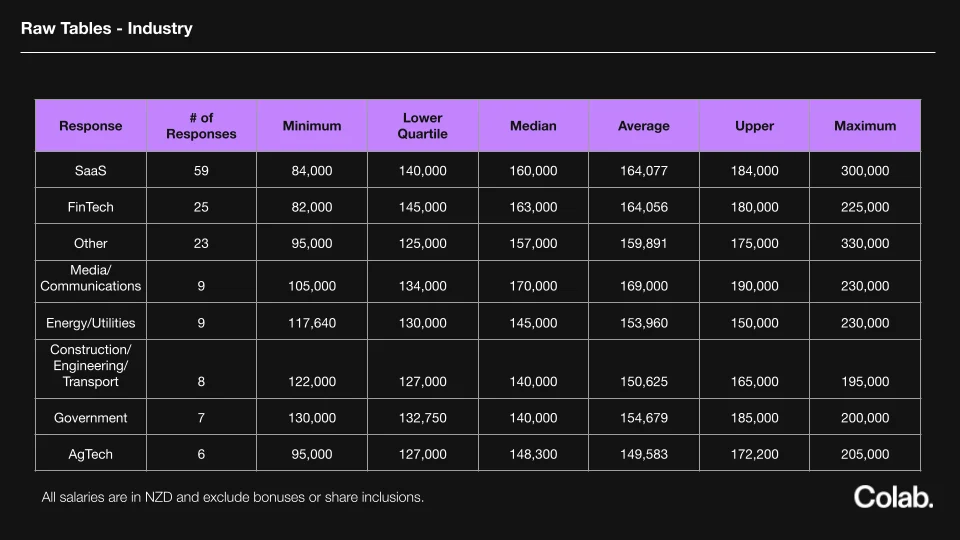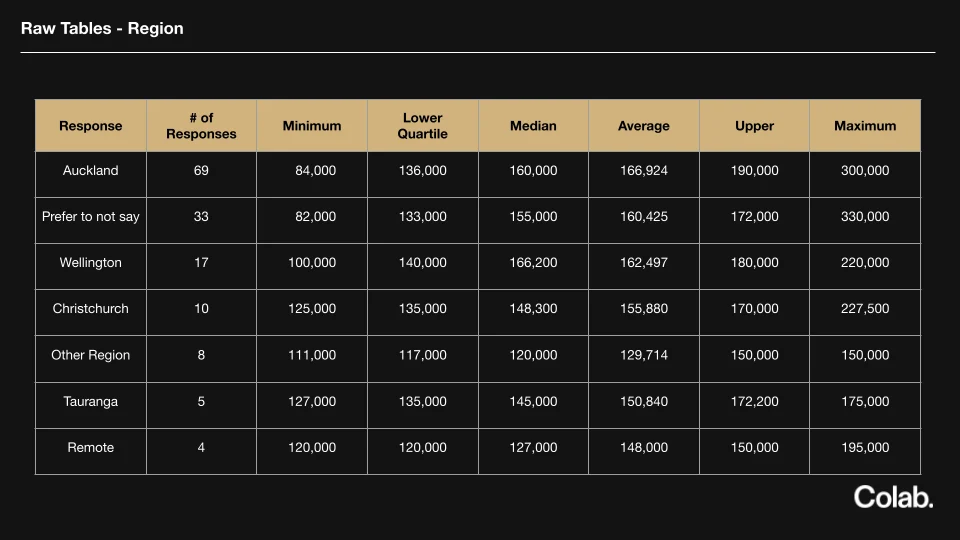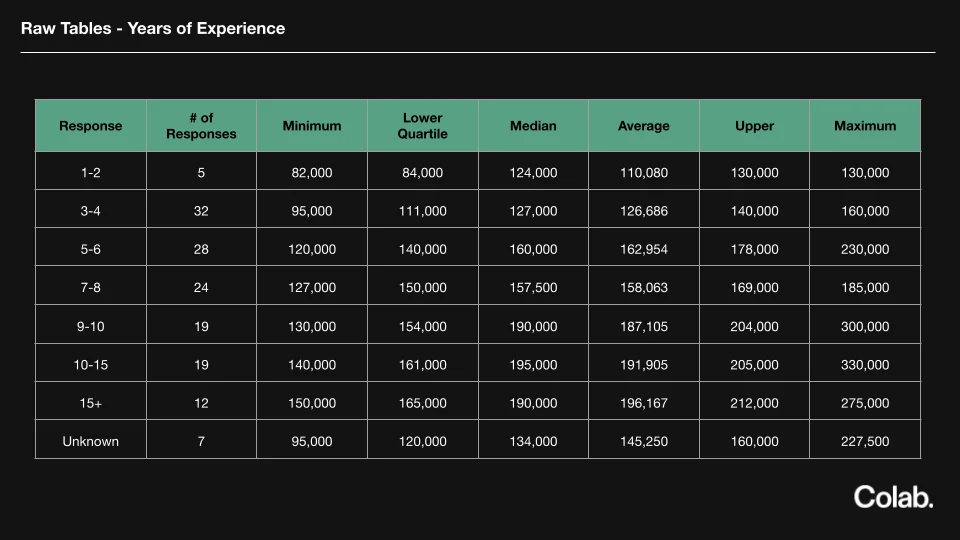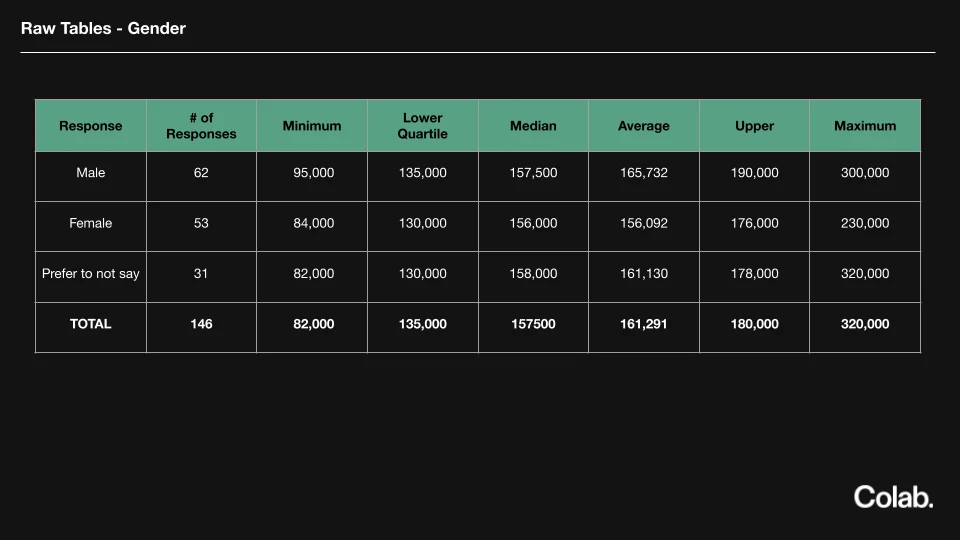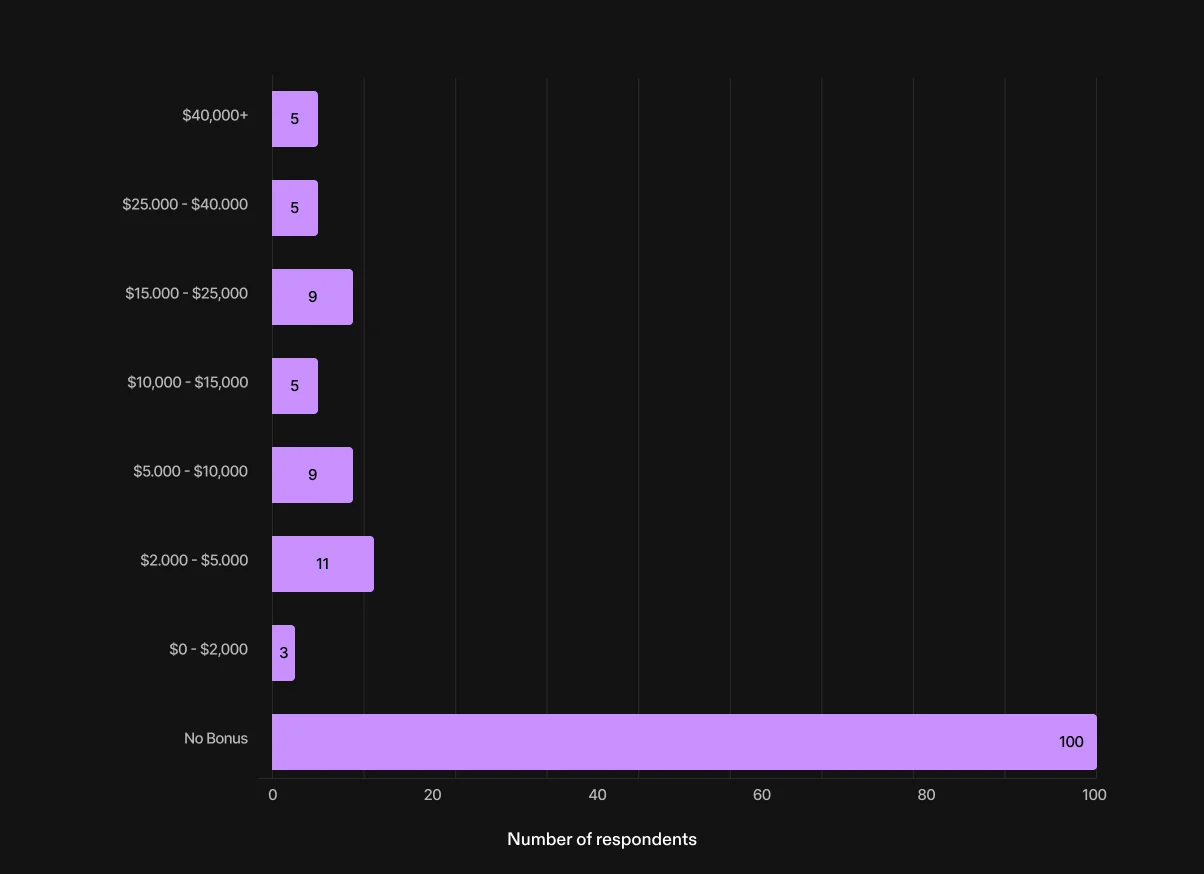How much do NZ Product Managers make?
The rise of senior PMs, a big surprise in gender pay parity, and more unexpected insights from our recent product management salary survey.

Hey, Adam here from Colab! Welcome to our first New Zealand Product Manager Salary Survey—an in-depth look at compensation benchmarks for product manager roles by level in Aotearoa. Colab’s goal is to help product people and companies level up their product management, and this survey is part of our mission to support product practitioners.
We know many of you have been waiting for this: real numbers, direct comparisons, and insight into any specific trends for product managers across all seniorities.
We’ve also heard questions about how Kiwi product managers compare internationally, but we’ll leave that to the likes of Lenny’s newsletter for deep dives into US/EU compensation data. For now, let’s keep our spotlight on New Zealand—where we can learn about salaries, bonuses, shares, and how these vary by experience, job title, region, and gender.
A huge shout-out to Andrew McLeod for leading the survey design, analysis, and pulling out the most interesting takeaways. We plan on running this survey annually and look forward to your feedback. Let’s jump right into what we found!
Key highlights in salary data
- 146 total respondents (after filtering out international entries for data integrity).
- 38% identified as female, 45% male, and 16% preferred not to disclose.
- The average years of experience was 7 years, 10 months.
- The median NZ salary for product managers is $157,250 (vs. a national median of ~$57k, according to Stats NZ).
- SaaS was unsurprisingly the most common industry, with 60 (respondents), followed by FinTech 22 (respondents).
- 32% of all product managers surveyed receive a monetary bonus, and 35% have share options.
- Potentially the biggest surprise: Near pay parity early on for men and women, which diverges significantly (15–27% gap) after 10 years of experience.
Our methodology
Throughout February 2025, we surveyed product managers nationwide about their gross annual salary (excluding bonuses/shares). There have been a lot of learnings along the way, and we wanted to share some behind-the-scenes.
- We’ve taken our commitment to anonymity seriously, and you may notice a few omissions and gaps in the data. This is largely due to an attribute having fewer than three respondents and, therefore, needs to be aggregated. In other cases, we’ve masked data to protect the respondent’s identities.
- We received 146 total responses from New Zealand, we’ve allowed for a ±5% margin of error with insights.
- At the end, you’ll find detailed tables covering years of experience, role, industry, and more.
We’re pleased by the turnout for the first survey—but we hope to gather even more data next time to give you an even clearer view.
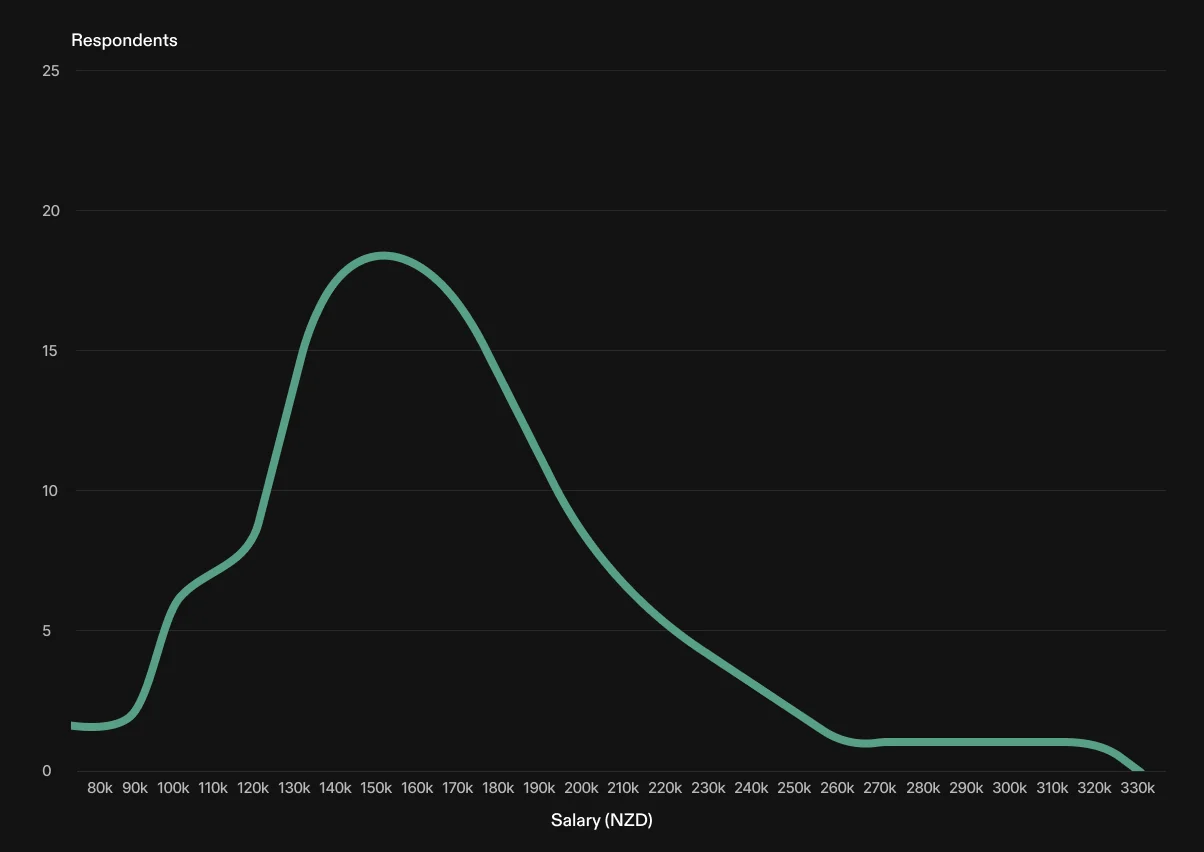
Question: What is your annual gross salary, excluding any perks or performance bonuses?
N = 146
Salary by experience
Years of experience is a powerful salary predictor which will come as no surprise —but it’s not the whole story. There were a couple of interesting trends.
- Entry level salary is ~$80,000 – suggesting a higher requirement to become a Product Manager compared to other industries.
- >$180k would put you in the top 25% of Product Managers in New Zealand, which would typically take 10+ years of experience.
- 32% of Product Managers receive a monetary bonus.
- 35% of Product Managers are offered to take part in a share incentive (discounted or included).
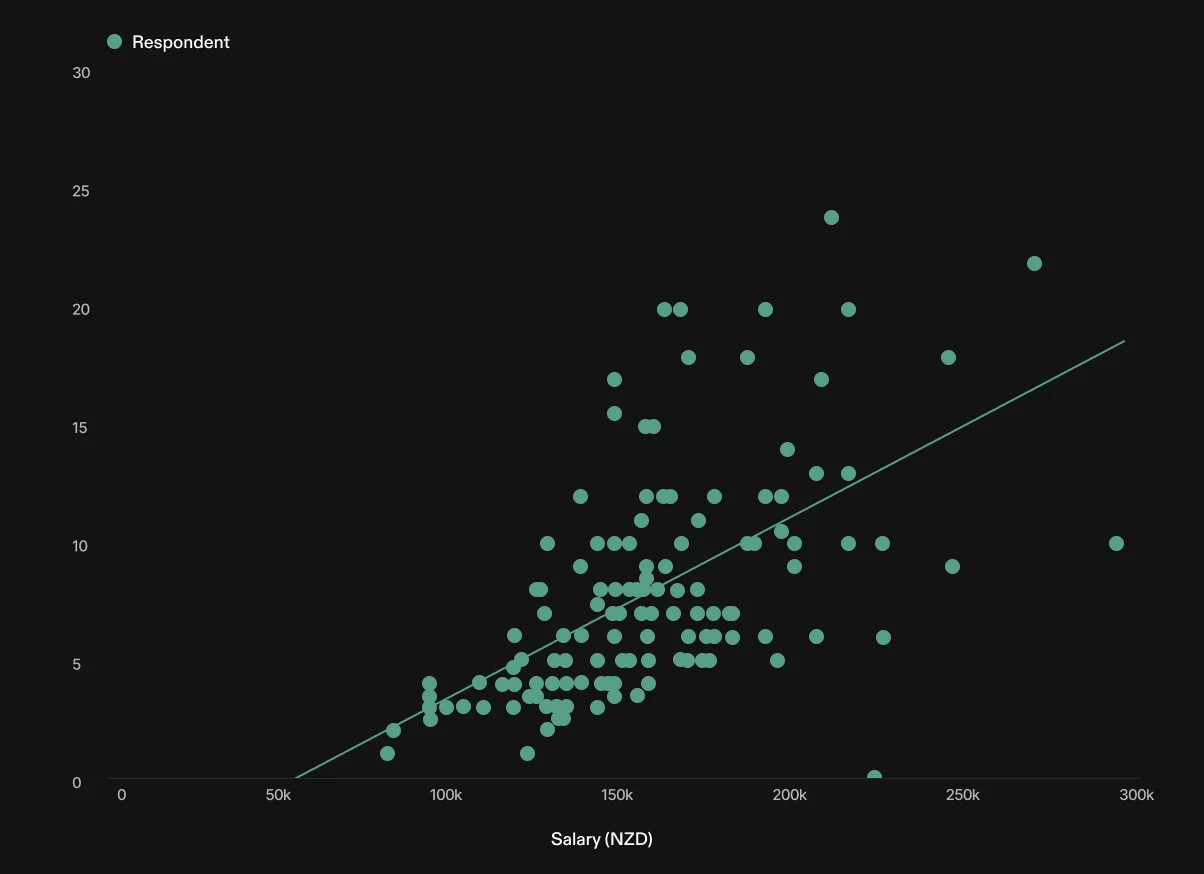
Questions: What is your annual gross salary excluding any perks or performance bonuses?
How many years have you worked in Product Management or related functions?
N = 146
Titles, titles, titles: the (un)fair advantage
Job titles can sometimes feel arbitrary, but from the data, they hugely impact pay, and I wanted to dig a bit deeper into this. Here’s a quick rundown:
- Product Manager: The broadest title, spanning $80k–$225k. Median roughly $140k.
- Senior Product Manager: Jumps to a $163k median but can soar beyond $225k for top-end roles.
- Product Owner / Lead: Typically lands around the $145k–$155k mark, bridging mid-level and senior responsibilities.
- Head of Product: Is the first title to go beyond $200k median, with some at $250k+.
- Chief / VP of Product: Rare, but top-end folks easily pass $300k.
There’s also no ironclad rule that a more senior title always means a bigger paycheck—like the possibility of a “Product Owner” out-earning a “Senior Product Manager” at the same company. Our advice on this is as you plan your career, understand the comp philosophy at each company and negotiate accordingly.
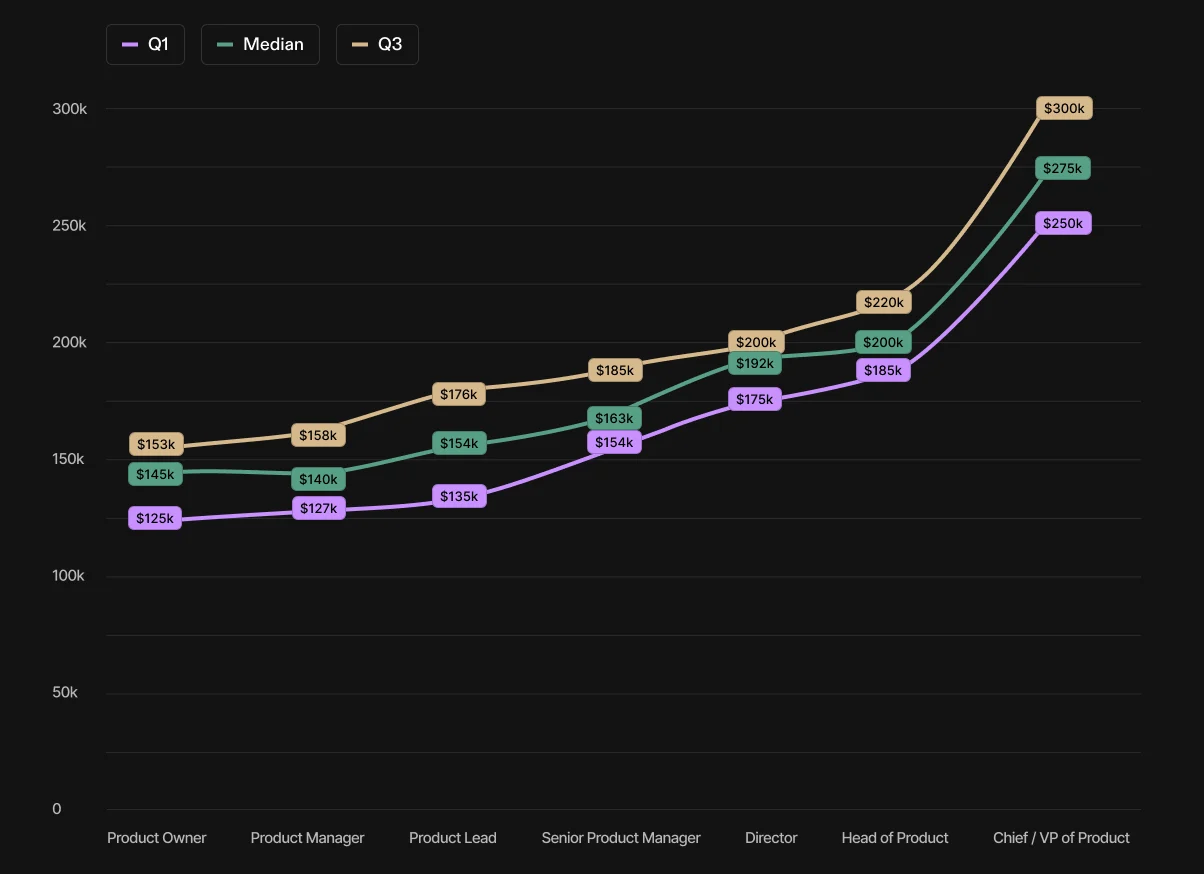
Questions: What is your annual gross salary, excluding any perks or performance bonuses?
What is your Job Title?
N = 114 (62 Male, 52 Female – excludes ‘Prefer not say’ & ‘Non-binary’).
The gender pay gap: same start, different finish
One of the survey’s most interesting findings: Men and women reported similar early- and mid-career salaries, with medians only $1,500 apart when looking at broad data. The big divergence shows up post-10 years, where men pull ahead by 15–27%. Let’s dig a bit deeper into this.
Looking at the average salaries, we saw some semblance of pay parity between the genders, with males at $165k and females at $156k. There were a few notable differences:
- Male respondents (62) had a higher minimum salary of $95k and a higher maximum salary of over $300k.
- The upper quartile for males was $190k, whereas for females, it was $175k.
It is important to consider a few reporting biases:
- The average male respondent had 8 years of experience, whereas the average for females was 7.5.
- These numbers are skewed slightly by male outliers. Across 146 respondents, the median salaries were within $1,500 i.e Male: $157,500, Female: $156,000
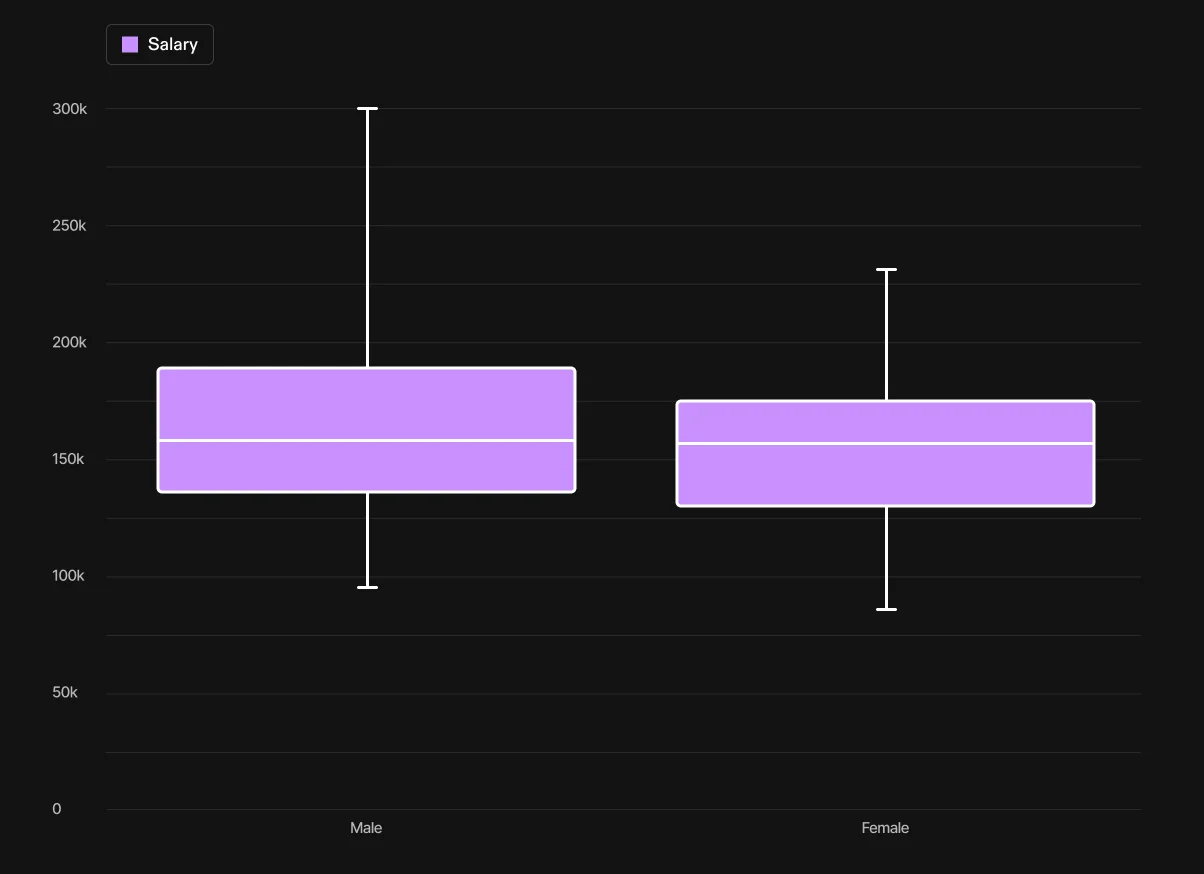
Question: What gender do you identify as?
N = 114 (62 Male, 52 Female – excludes ‘Prefer not say’ & ‘Non-binary’).
When we incorporate years of experience into the equation, we start to see the gender pay gap with more clarity. Early on, salary differences are within the 5% margin of error, at which point salaries deviate significantly:
- 10-15 years:
Male: $164k
Female: $140k (-15%) - 15+ years:
Male: $205k
Female: $150k (-27%)
This aligns with national research highlighting that the pay gap widens between 30-44. It’s a stark reminder that pay equity is a moving target: near parity early on doesn’t always translate into long-term equality.
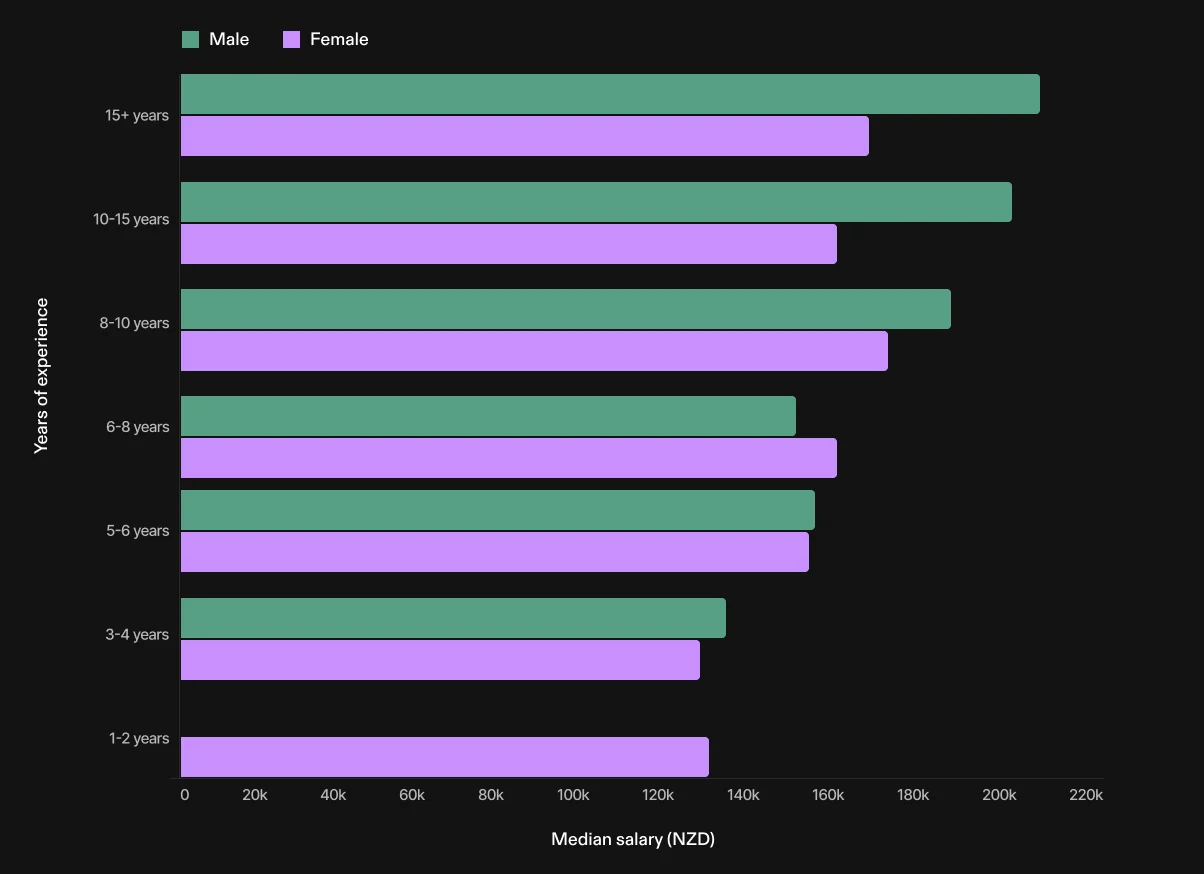
Question: What gender do you identify as?
How many years have you worked in Product Management or related functions?
N = 114 (62 Male, 52 Female – excludes ‘Prefer not say’ & ‘Non-binary’).
Regional differences: Wellington’s quiet win
If you’re betting on Auckland as the place for the highest median salary, think again! Wellington took a narrow lead with a $166k highest median salary, despite a lower average years of experience (7.3 years). Couple of other interesting trends from the data.
- Auckland still dominates in volume (67 respondents), with over 25% of them earning >$192k and 75% earning $140k.
- A few outliers from Other regions reported $300k+, indicating top-tier pay can surface anywhere in NZ.
- Remote roles, on average, dipped lower, though some reported salaries over $150k—suggesting remote positions can still be lucrative if you’re highly experienced or specialised but do generally take a hit for flexibility in terms of salary which is a trend we expect to continue to see in 2025.
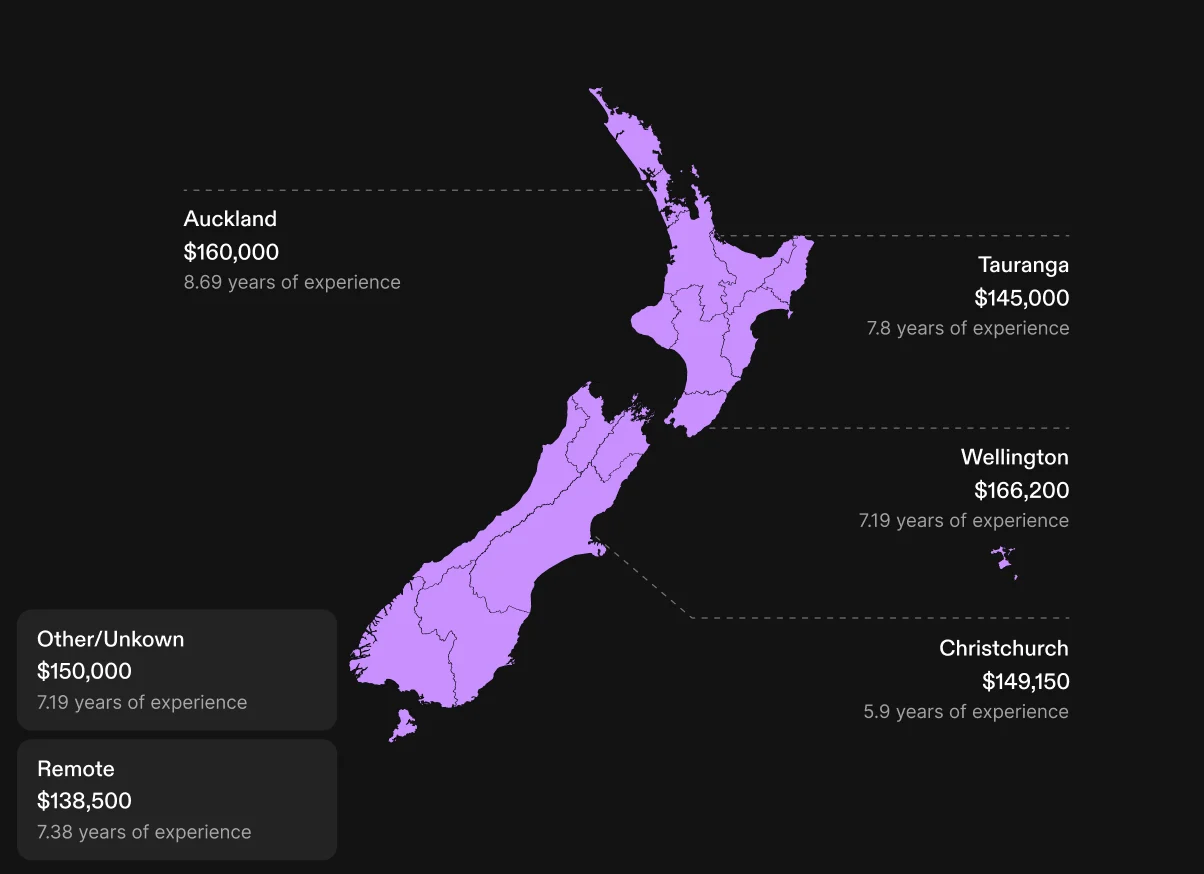
Question: Where do you work from?
N = 146
Industry breakdown
Product Salaries across industries were consistent from an average perspective. But we do observe some interesting trends:
Energy / Utilities:
75% of respondents earn more than $150k, the lowest upper quartile figure across the industries, and a strong average salary of $145k.
Government:
Unsurprisingly, product folks working in Government have the least range, with 7 respondents all between $130k – $200k, and an average at $140k.
SaaS:
The SaaS industry has the largest range of salaries, from $85k up to $300k. With 59 respondents, this was the largest single industry captured by the survey.
Media & Communications:
This is the strongest industry in terms of average salary standing at $170k, with the majority of salaries below $190k.
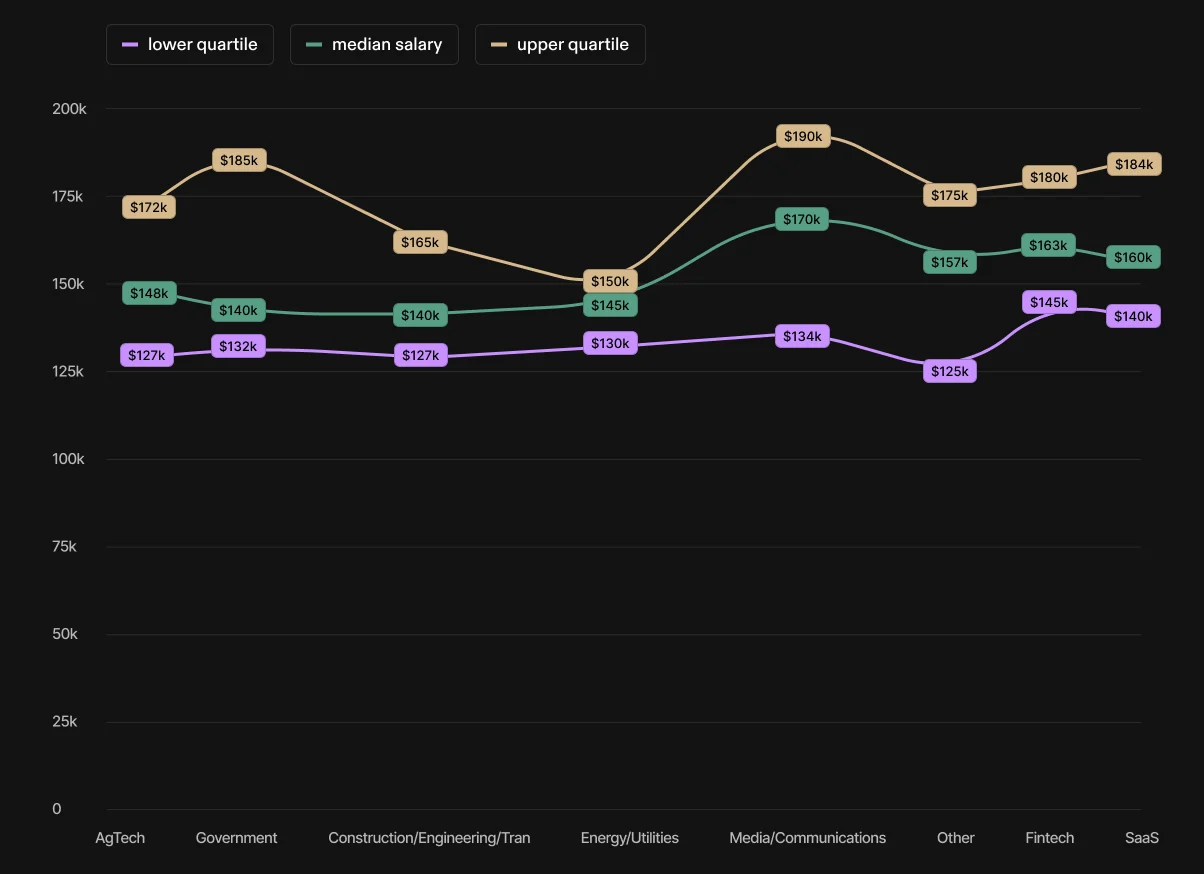
Question: What industry do you work in? e.g SaaS, Fintech, Medtech etc. Other includes: Education, MedTech, HR/Admin, Legal, FMCG etc.
N = 146
Bonuses and shares: a closer look
It’s not just about base salary—32% of respondents reported getting a monetary bonus, and 37% reported having shares (discounted or otherwise). Contrary to popular belief, bonuses aren’t exclusive to more senior roles, although experience does impact the likelihood and scale:
- If you’re 0–5 years, 30% received a bonus with an average of ~8.5% of base.
- 5-10 years, 27% received a bonus with the same average of ~8.5% of base.
- 10–15 years in? 42% received a bonus averaging an ~11%.
- 15+ years same again, 42% but a greater average of 16% of base salary.
Question: If you have received a bonus in the last 12 months, how much did you receive pre-tax?
N = 146
Slightly more people (37%) were offered shares as part of their remuneration, either discounted or as part of their base package.
What’s interesting is that it isn’t necessarily the same people who receive a bonus and share options:
Received bonus (47 Respondents):
- 32% received shares in remuneration
- 15% received discounted shares
- 53% did not receive share options
Did not receive a bonus (100 Respondents):
- 19% received shares in remuneration
- 12% received discounted shares
- 69% did not receive bonus/share options
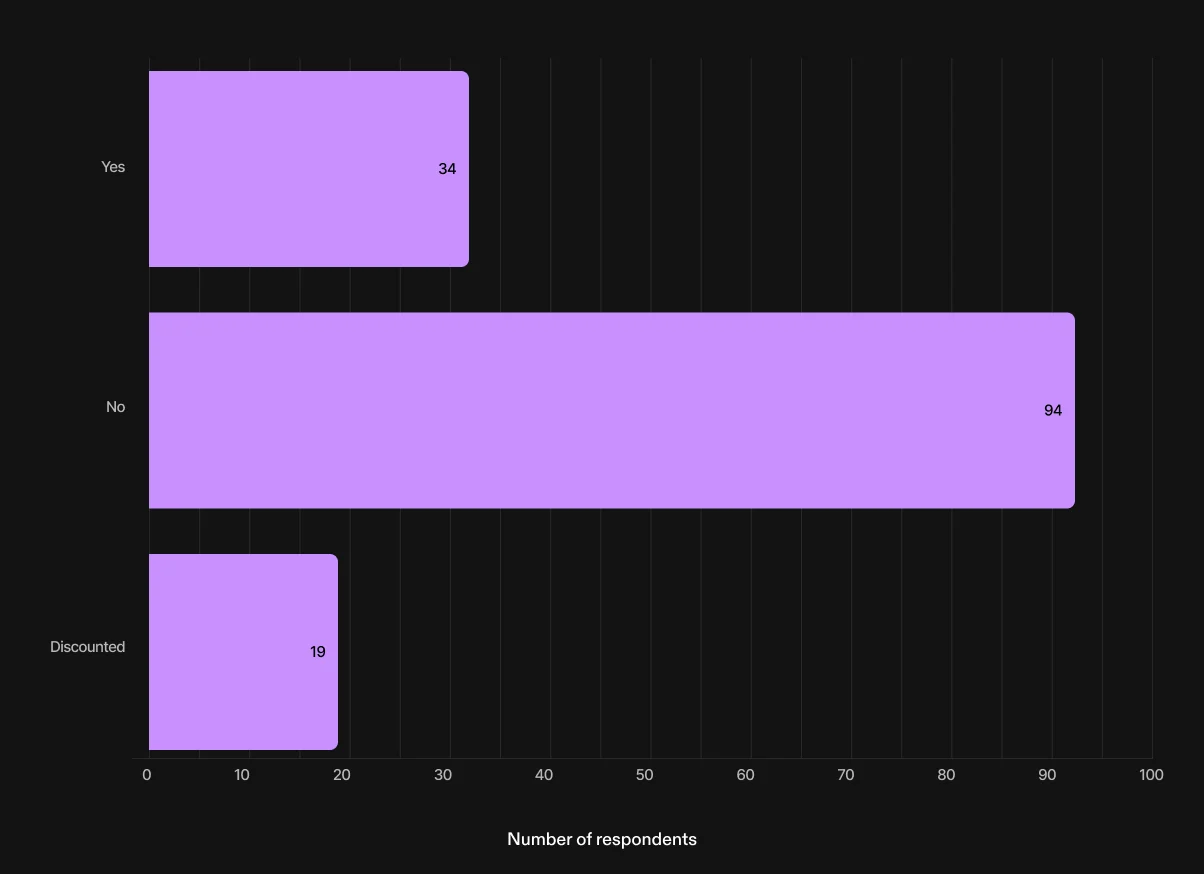
Question: Does your remuneration include shares options?
N = 146
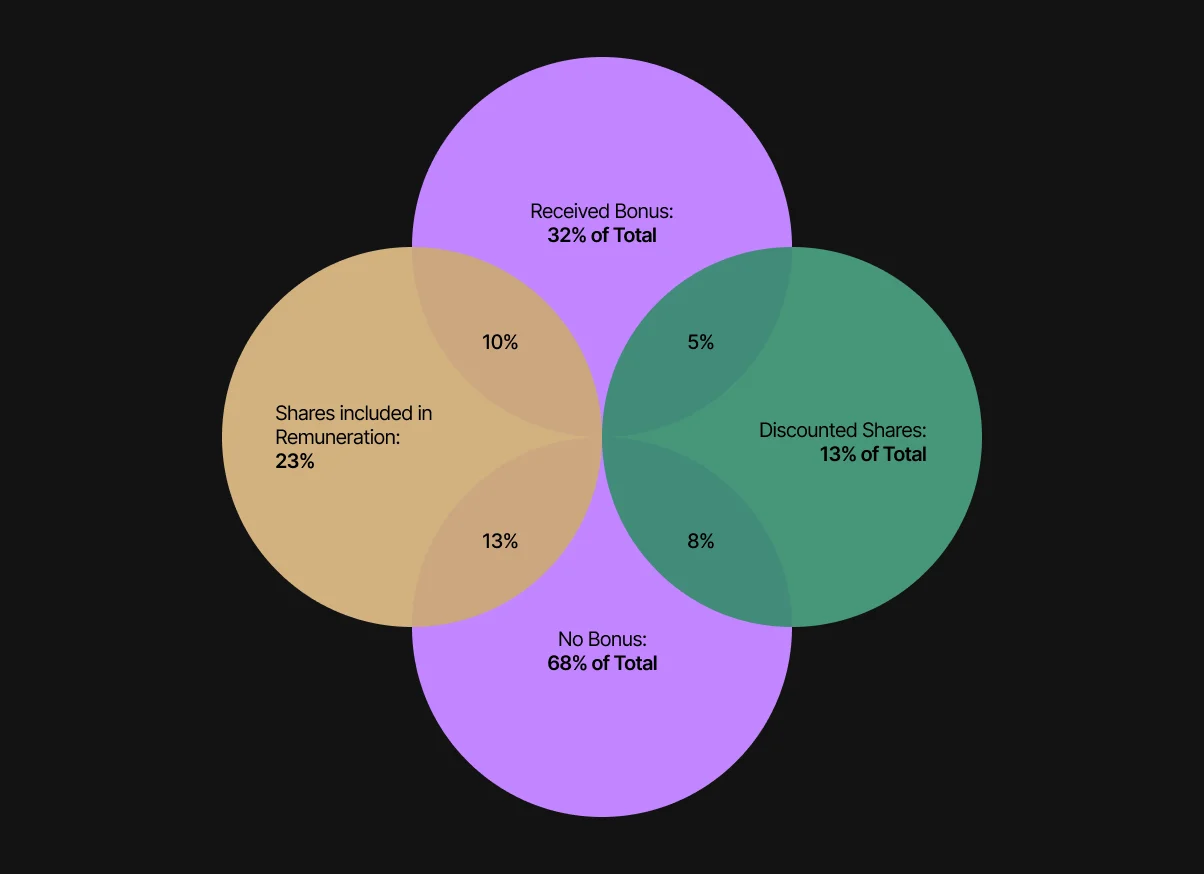
Looking forward and looking back
All signs point to ongoing career mobility for NZ product managers. If you’re looking for that next jump, you’re in good company and a good position to negotiate.
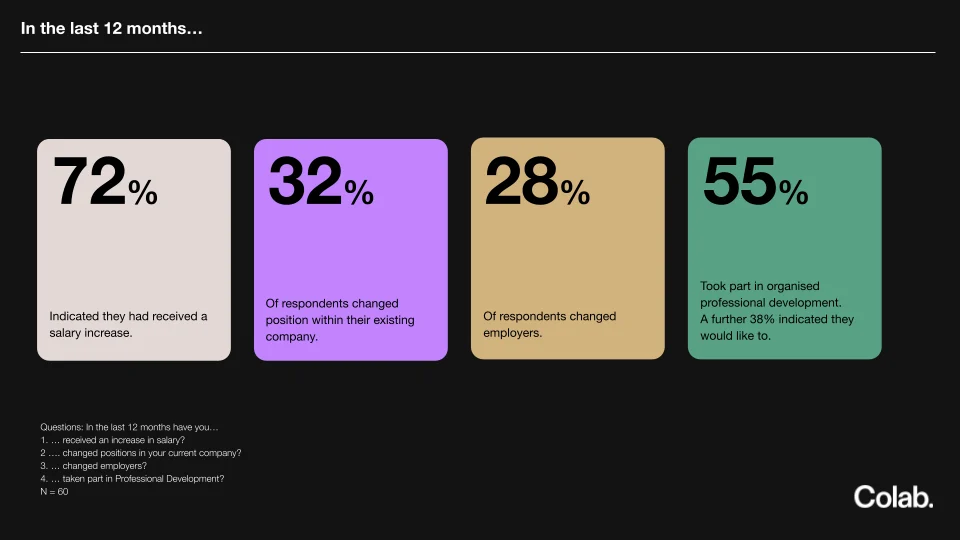
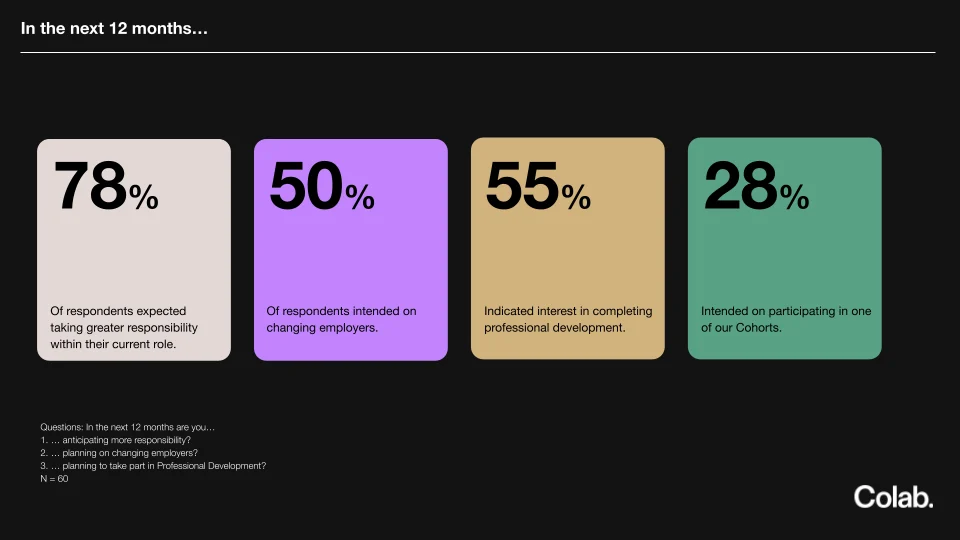
For those interested in learning how Colab can help with professional development, check out our programs.
Final takeaways
Here are some final thoughts from the data we have gathered.
- Expect early pay parity:
Men and women generally start off with nearly equal salaries, but the difference grows after 10 years. - Job title influences pay:
Senior Product Manager vs. Product Owner vs. Head of Product can mean tens of thousands in difference—even at similar experience levels. - SaaS isn’t the only game:
While SaaS is the largest group, sectors like FinTech, Govt, and Media also hold competitive salaries (and, in some cases, surprise outliers). - Bonuses and shares matter:
Over a third of respondents get shares, and about a third get cash bonuses—total comp is often a mix and can shift with your years of experience. - Regional variation:
Wellington might quietly pay more on average, but Auckland remains a hotspot for variety and upper-end potential.
Shout-out and what’s next
Huge credit goes to Andrew McLeod for analysing this survey and offering clear, data-driven insights. This is our first New Zealand Salary Survey dedicated exclusively to product people in the country. If you want more detail, check out the raw tables at the end for a deeper dive, or let us know what other breakdowns you’d like to see next year.
For broader international comparisons, we recommend resources like Lenny’s newsletter.
We’ll be running this survey again next year—look out for bigger sample sizes, new categories, and even more nuance. In the meantime, feel free to reach out, comment, or share your own experiences and tag Colab. We’d love to keep this conversation going and help product managers in NZ make the most of their careers.
Thanks for reading, and happy building!
—
Want to improve your career opportunities, confidence, and pay? Explore our programmes and membership.
Follow us for more insights and next year’s updated results. Until then, make sure you’re getting paid what you’re worth!
Raw Tables:
